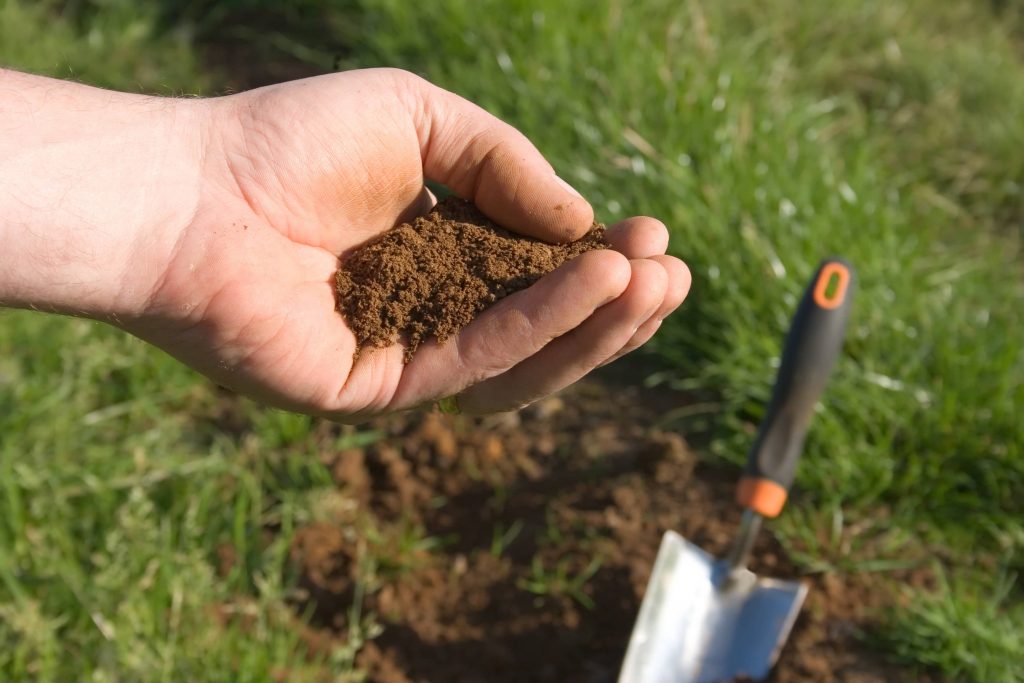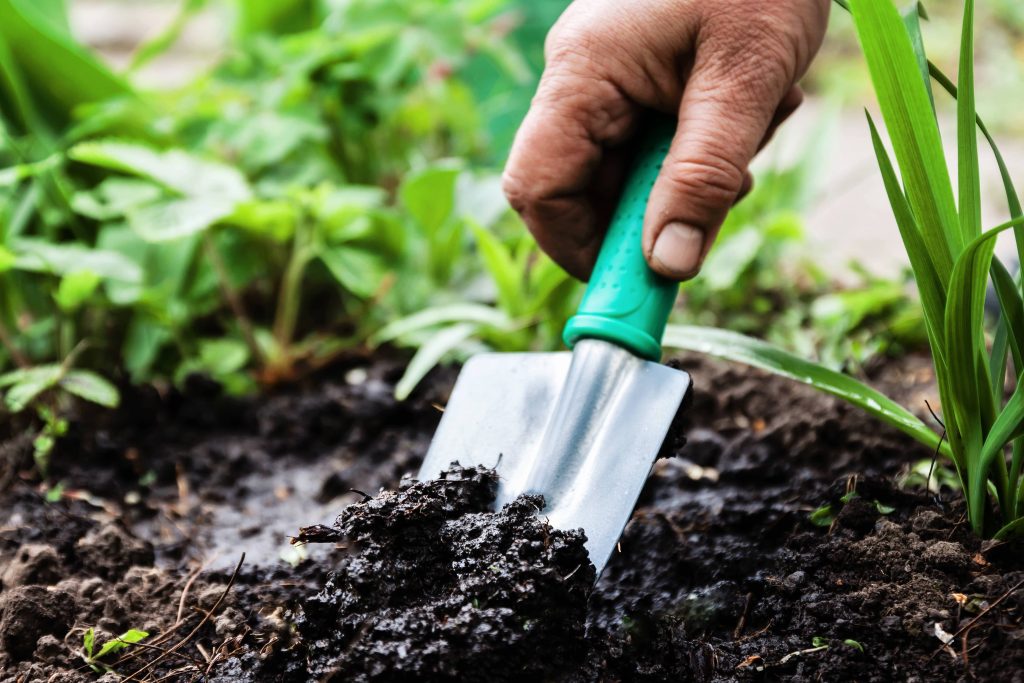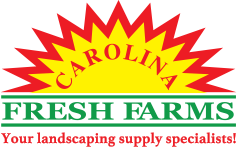
Collecting a soil sample is one of the most important and beneficial steps for your lawn. Soil samples are an excellent way to measure your lawn’s health and nutritional balance. They are great management tools to assist in any fertilizer decisions for your lawn and garden. In turn, you can begin optimizing and maintaining the appropriate soil fertility levels and pH balance. Once you’ve collected a soil sample, simply drop it off at one of Carolina Fresh Farms’ seven locations free of charge.
What is a Soil Sample?
A soil sample is a small collection of soil from your lawn or garden. Any Carolina Fresh Farms Turf Center will be happy to send your soil samples to our soil testing laboratory. An analysis will be conducted to determine which nutrients are currently in your soil and which nutrients your soil may be lacking. Carolina Fresh Farms will then give you the best possible recommendations for any necessary amendments. The soil samples will need to consist of four cups of soil, which is basically the same size as a quart-sized zippered storage bag. You can collect a soil sample with a stainless steel garden spade or trowel. Garden tools made of bronze or brass will contaminate the soil sample. Be sure to collect soil samples from various locations throughout the yard to obtain more accurate results. For more information about collecting a soil sample, call one of our seven locations or contact us.

Why Should I Collect a Soil Sample?
Soil samples will keep you from wasting time, money and effort on products that won’t benefit your lawn and garden. Applying fertilizers without a soil sample is like aiming at a target in the dark. Why not find out which exact nutrients your soil needs so that your lawn and garden can perform at their full potential? In all likelihood, this may even help you out with weed pressure. For example, dandelions and dockweed prefer acidic soil conditions. Clover prefers soils that are low in nitrogen content. By adjusting the soil’s pH levels, you can prevent weeds at the same time.
A soil sample will indicate your fertility requirements and how to amend your soil so that your grass has a healthy environment to grow in. It will also help you determine why your current lawn may not be performing as well.
What Will a Soil Sample Show Me?
Once you’ve received your soil sample results, you will have an evaluation of which nutrients are currently in your soil and which nutrients your soil may be lacking. A soil sample evaluation will contain measurements for phosphorus (P), potassium (K), magnesium (Mg) and calcium (Ca) levels as well as your soil type, the cation exchange capacity and the level of organic matter (OM) among other helpful information. Carolina Fresh Farms will help you read and evaluate your soil analysis and then recommend any appropriate amendments your soil may need.

When Should I Collect a Soil Sample?
Soil samples typically take place right before proceeding with any new sod installation projects. However, soil samples can be taken at any time during any point of the year for any reason.
The best times to collect soil samples for each grass type are as follows:
- Bermuda: March 15th–April 15th
- Centipede: April 1st–May 15th
- Fescue: August 1st–September 1st
- St. Augustine: March 15th–April 20th
- Zoysia: March 15th–April 30th
It’s recommended that you collect a soil sample at least once a year to keep a well maintained lawn and garden. Be sure to collect soil samples around the same time every year for more consistent results. Try to refrain from collecting a soil sample when the ground is wet or recently fertilized. Although soil samples are optional aspects of your lawn maintenance schedule, they are highly recommended because they indicate your fertility requirements and pH levels so you can know how to amend your soil. As a result, your lawn and garden will have a healthy environment to grow in. For more information, call one of our seven locations or contact us.
Related Products
Sorry, we couldn't find any posts. Please try a different search.
